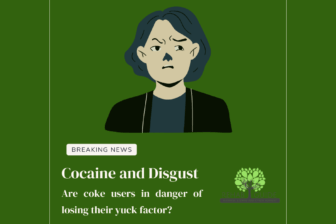Addiction May Be Pre-Programmed In The Brain
Pre-programmed addiction
Over the years, we’ve branded the alcoholic as merely weak-willed. However, within the medical and scientific communities, there is a broad consensus regarding alcoholism as being a disease.
One thing we don’t entirely know yet is how drug and alcohol addiction gets started.
Various theories have been proposed, although none has yet been proved.
Many suggest it may be hereditary; it does tend to run in families, and there’s about a fifty per cent chance that the child of one or more alcoholic parents will become alcoholic.
But that doesn’t explain why the other fifty per cent won’t or why many alcoholics come from families where chemical dependence hasn’t (apparently) been a problem in the past.
Other theories claim that chemical dependence is related to a specific personality type. But millions of alcoholics don’t fit any particular profile.
All sorts of individuals become chemically dependent, for no apparent reason. On the other hand, it seems others can’t become chemically dependent no matter how hard they try!
Time and time again, you’ve heard people state that the reason they became an addict was that they were genetically predisposed to having an addictive personality. But, what is an addictive personality, and is it a myth or fact?
Below we’re going to provide facts that will help you decide whether you think an addictive personality is real or not.
Characteristics of Addiction
It is essential to understand the characteristics of addiction.
Cravings
Being an addict is not being able to be without the substance you have been using. Even when you attempt to get sober, you find yourself relapsing, and it’s because you can’t escape the calling and the cravings to continue using that specific drug.
Unpredictable moods
There is a loss of interest in hobbies or event that you used to love. When you become addicted to drugs and alcohol, nothing else matters once the substance has taken control, and you are frequently drinking to change your mood. This negatively impacts on your mental health in several ways.
Because of the substance being in control, things that you once enjoyed or responsibilities like going to work and paying bills becomes an afterthought.
Denial
Denial is also another characteristic commonly found in those that are addicted to drugs or alcohol. There are times when addicts work hard to convince themselves and others that they are in control of their addiction.
Denial may cause them to work harder to hide their drugs and the paraphernalia they need to use these drugs. It may also mean that they continuously deny being addicted even though it’s clear that their showing signs of addiction.
Relationship problems
As a result of these constant betrayals, the relationships between the addict and others become fractured and unless the addict enters into recovery can remain broken forever.
Once in recovery, you’ll find that a critical part of treatment is geared towards making amends and doing what it takes to heal these broken relationships.
Addictive Personality Definition
The meaning of having an addictive personality is possessing a specific set of traits that leave you more susceptible to becoming addicted.
The addictive personality characteristics are particular and knowing whether you have them or not can help you identify if you’ve got an addictive personality or not.
Myth or Reality?
When asking yourself, why do I get addicted to things easily? Or what causes an addictive personality it can be challenging to pinpoint the answers for these questions.
For years, researchers have been studying whether genetics plays a role in a person having an addictive personality or not. While there isn’t research to say for sure that genetics is to blame, it does show other links.
Studies do show that a piece of what makes an addictive personality does have to do with genetics. More studies will need to be done in the future to provide evidence for this and to pinpoint other factors that contribute.
What Increases Your Risk of Addiction?
Several factors can lead to a life of addiction. This may be things that you may have experienced as a child.
For a certain percentage of children, their childhood is filled with emotional, physical, and mental traumas that will continue to shape who they become into their teen and adult years.
If a child doesn’t receive help, including counselling to work through these traumas, it can be detrimental to their future in ways that they’ve never considered.
Hereditary Patterns
One of the most important research in recent years has explored genetic factors in one’s predisposition to alcohol problems. Family studies over many years have demonstrated that alcoholism is far more common in the relatives of alcoholics than in the general public.
However, special techniques are necessary to distinguish inherited from environmental influences. One such technique is the study of twins; another is the study of adoptees.
More research will need to be done to solidify that genes can be entirely responsible conclusively. As of now, we do understand that it plays a role in having an addictive personality, but it’s not wholly to blame.
Mental health issues
For many addicts, once they’ve eliminated the addiction factor, it uncovers that they have underlying mental issues. Another of the most common issues that drive addiction is mental health issues like bipolar schizophrenia and depression.
In recovery, an addict will learn how to manage these underlying mental health issues. The last factor that can contribute to leading a life of addiction is the environment that they’re in.
This could mean seeing family members and friends of the family using drugs and alcohol around them. Or it could mean having a group of friends that are regularly using.
Addictive Drug Addict Personality Traits
While a few of the traits above are going to be the same as the ones that you’ll find under those that correlate to having an addictive personality, someone that has an addictive personality will find themselves making decisions that are based on the thrill of the decision rather than common sense.
Making these risky decisions is a sign of another personality trait of those that have addictive personalities, and that’s issues with impulse control. This means having a problem with controlling both the decisions and actions that one makes.
If you’ve ever asked yourself, “do I have an addictive personality.” The answer may be yes if you find yourself becoming easily irritated or wanting to isolate yourself from those around you that you’ve got strong and healthy relationships with.
Why Is the Idea of Addictive Personality Harmful?
The idea of having an addictive personality can be not only harmful but also misleading. It gives those that don’t find themselves with any of the characteristics feeling as if they have some immunity to becoming an addict.
This is not true when it comes to addiction one of the key reasons somebody continues to be addicted to a substance is because of the way it makes them feel and the chemical response that their body has to the substance.
When you use a substance, your body responds in a specific way, and when you don’t have that substance, your body isn’t able to reach that level of feeling anymore.
Leading the addict and their bodies to continue needing and craving the substance when they aren’t using it.
When you feel as if you’re somehow made to be addicted to something, it may cause you not to seek treatment at all. The truth is if you want to recover from addiction and get the help you need, you can. And there are people in place to help you achieve the recovery that you’re wanting.
What Is an Addictive Personality?
When it comes to answering the question of what is an addictive personality, there is no concrete answer. In a lot of ways, the idea of having an addictive personality is not accurate. That narrative can be misleading and harmful to a person’s need to seek out treatment for themselves.
Although, the argument about whether it is real or not continues the idea of addiction is very real. There are many people suffering from addiction and reaching out for help.
If you’re looking for help to get your life back and take back the control you lost contact The Rehab Guide. We have programs that will help you in every step of your recovery journey.
You’ve done the hard part, and that’s accepting that you’ve got a problem. Now let’s help you with the next steps that you’ve got to take to live a healthier life. Contact us on 02072052845.
Lots More Information
Related Articles





